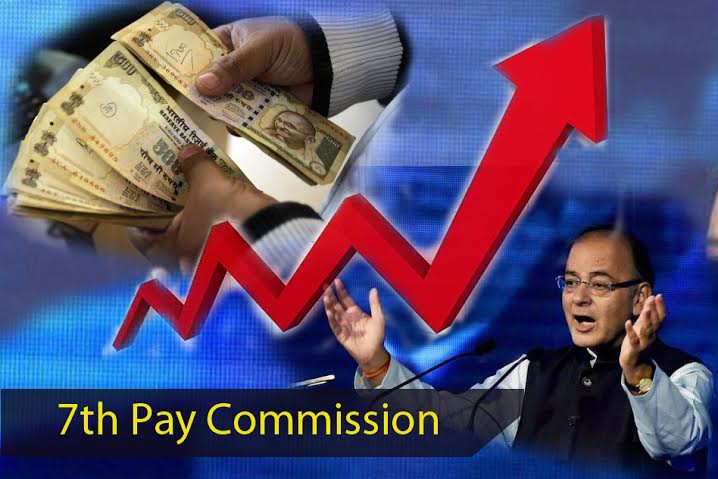
All You Need To Know About The 7th Pay Commission And Its Important Provisions
30 Jun 2016 9:54 AM GMT
The Union Cabinet on Wednesday has approved the recommendations of the 7th Pay Commission which ensures a hike in the salaries of the central government employees as well as pensioners. The decision was taken at a cabinet meeting chaired by Prime Minister Narendra Modi.
About the 7th pay commission
The Government of India has initiated the process to constitute the 7th Central Pay Commission along with finalization of its Terms of Reference, the composition and the possible timeframe for submission of its Report.On September 25, 2013, the finance minister P Chidambaram announced that the Prime Minister Manmohan Singh has approved the constitution of the 7th Pay Commission. Its recommendations are likely to be implemented with effect from January 1, 2016. Justice A.K Mathur will be heading the Seventh Pay Commission, announcement of which was done on 4 February 2014
The 7th pay commission is going to have an impact on some 47 lakh central government employees and 52 lakh pensioners.
The Key highlights of the 7th Pay Commission:
- Based on the Aykroyd formula, the minimum pay for a central government employee has been raised to Rs 18,000 per month, from the current Rs 7,000. While the maximum pay by the Cabinet Secretary has been increased to Rs 2.5 lakh per month from the current Rs 90,000.
- The recommendation date of implementation is January 1, 2016. Therefore, the government employees will get arrears from January this year.
- Salaries and allowances have been recommended a 23.5 per cent hike. Whereas, base pay has been recommended a hike of 15 per cent — the lowest in 70 years. The 6th Pay Commission gave a hike of 20 per cent.
- The rate of increment has been retained at 3 per cent. This will benefit the future employees with higher basic pay as the annual increments they’ll earn will be 2.57 times than at present.
- The government hopes that the rise in salaries will give demand a boost and it will drive more consumers to spend their money in the economy.
- The total salary and pension bill of the Central Government, which will also include railway employees, will go up from estimated Rs 4.33 lakh crore to Rs 5.35 lakh crore during 2016-17.
- Several improvements have been made in the defence pay matrix and the Combined Armed Police Forces (CAPF) that includes: i) The ceiling on gratuity will be increased by 25 per cent from Rs 10 lakh to Rs 20 lakh. ii) The compensation for civil and defence forces personnel payable to next of kin will be increased from Rs 10-20 lakh to Rs 25-45 lakh depending on the different ranks. iii) Military service pay has been increased to Rs 3,600, Rs 5,200, Rs 10,800 and Rs 15,500 from Rs 1,000, Rs 2,000, Rs 4,200 and Rs 6,000 respectively for various defence forces personnel. iii) A new leave named ‘Work Related Illness and Injury Leave’ (WRIIL) has been introduced that will replace hospital leave special disability leave and sick leave. Besides, if an employee is hospitalised on account of WRIIL, then full pay allowances will be granted to him.
- A new pay structure will be implemented to replace the current pay with a more transparent pay structure, which will replace the current system of pay bands and grade-based pay.
Who said what?
While the NDA appears satisfied over the pay hike, Congress has termed it as the lowest increase since independence.
“The fifth and sixth pay commissions had narrowed the gap between salaries paid in the private and government sectors…the seventh has moved further in the same direction. An IIM-Ahmedabad study has found that pay in the government sector is distinctly greater than that in the private sector so there can’t be protests from employees,” said Union Finance Minister Arun Jaitley.
While the Congress has expressed their grief on the new recommendations. “The pay hike is a mere 15 percent on the basic pay, compared to 23.5 percent, which is being falsely claimed by the Central Government. It is the lowest hike in last 70 years, i.e. since Independence,” Congress spokesperson Randeep Surjewala told ANI.
 All section
All section













